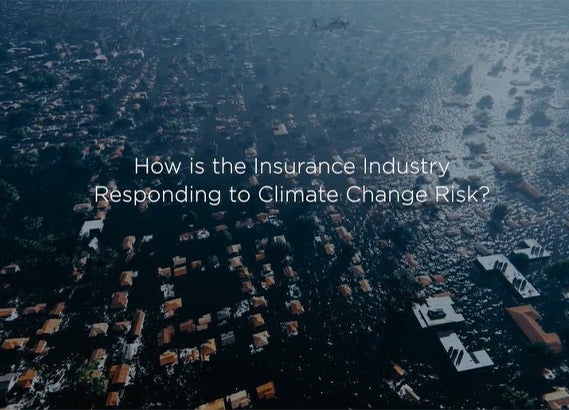Extend your perspective on underwriting risks to ensure robust portfolios. With sustainable portfolio management, you can understand longer-term exposure accumulations coordinated with growth strategies that consider climate change.
Integrate climate change risk throughout existing workflows
Moody’s uses a variety of climate data – from measurements of precipitation and sea level to storm intensity, frequency, and coastline impacts – to inform our leading-edge stochastic modeling. Learn why many (re)insurers have partnered with us to respond to the growing risk from climate change.

Stronger risk mitigation
Refined growth planning
Updated reinsurance and capital management
Understand costs and benefits in adaptation, resilience strategy, and investment options. Gain a consistent view of both current and longer-term climate change-related risk that’s easily accessible through your existing workflows.

Incorporate physical climate change risk when evaluating each new market entry, pricing adequacy, and product viability. Have confidence in your growth strategy when you understand how risks to your retained policy portfolio in the 10-plus year time horizon may evolve due to climate change across regions and within geographies.

Evaluate climate change risk to realize longer-term insight on risk selection and divestment planning. Ensure balanced portfolios that support your capital plans well into the future.

Why insurance solutions from Moody's
For more than 20 years, we have worked with partners and stakeholders to model complex physical risks and their financial impacts on P&C insurance portfolios and assets. We now extend that expertise to climate change risk. Our globally recognized, forward-looking climate change models use best-available climate science within a proven, consistent risk assessment framework.
We are committed to making climate change risk analytics accessible and business relevant. We accomplish that by extending the “common currency” of risk to climate change impacts, taking as foundational the rigor of catastrophe modeling and bolstering it with future-looking climate change scenarios. Our climate change analytics form a compatible, consistent complement to your current portfolio risk management tool kit.
Cutting edge technology – Intelligent Risk Platform
Moody’s RMS Climate Change Models are built on the Intelligent Risk Platform – the foundation of our models and unified risk analytics. The platform delivers insights enabling the seamless integration of a consistent view of current and future climate change risks into your existing workflows
Foundational, industry-proven modeling framework
Understanding the potential financial and strategic impact of climate change on your business requires incorporation of best available climate science with robust modeling of the compounding and correlated risks from geo-specific specific perils and asset characteristics.
Compatible long-term view of potential climate change impact scenarios
The complexity of evaluating potential impacts of climate change cannot be managed in isolation. A common framework to assess today’s risk and the future scenarios of risks from climate change ensures consistency in decision-making. Rely on rigorous assessment of potential scenarios for climate change impacts that leverage best-available climate science, understanding of variables that drive extreme events, regional risk differentiation, probabilistic modeling of loss to account for uncertainty and variability – all of which ensures a consistent view with the reference view of current risk.
Moody’s on climate - navigate climaterRisk with confidence: Trusted data, financial insight, better decisions for leaders across sectors
Climate risk is complex. Its impacts not only vary but also influence other areas of risk. A comprehensive understanding of climate risk includes insights on credit ratings and debt markets, global macroeconomic outlooks, and competition in traditional and emerging markets. Awareness of these interconnected risks can help you sharpen your risk management strategies and uncover new opportunities.

Interested in deeper climate change risk modeling?











